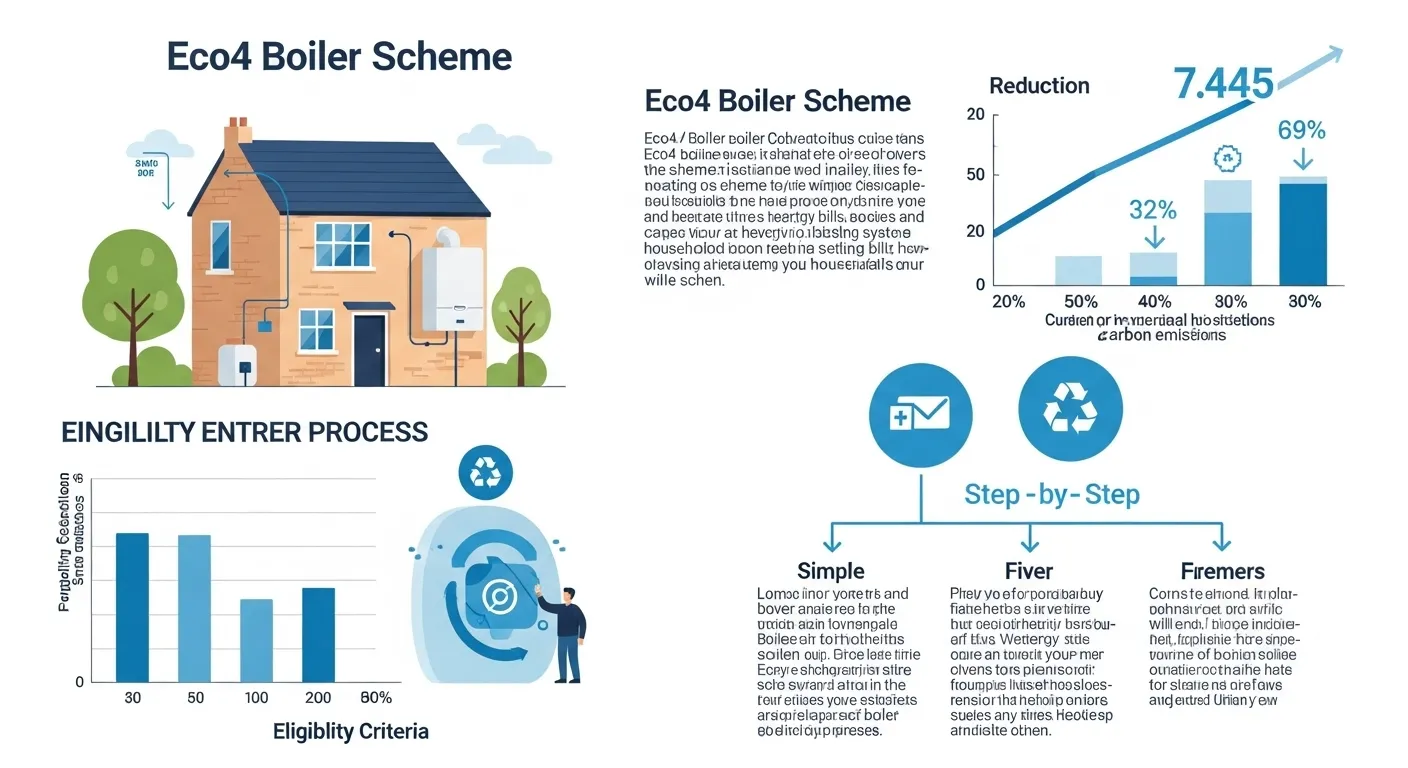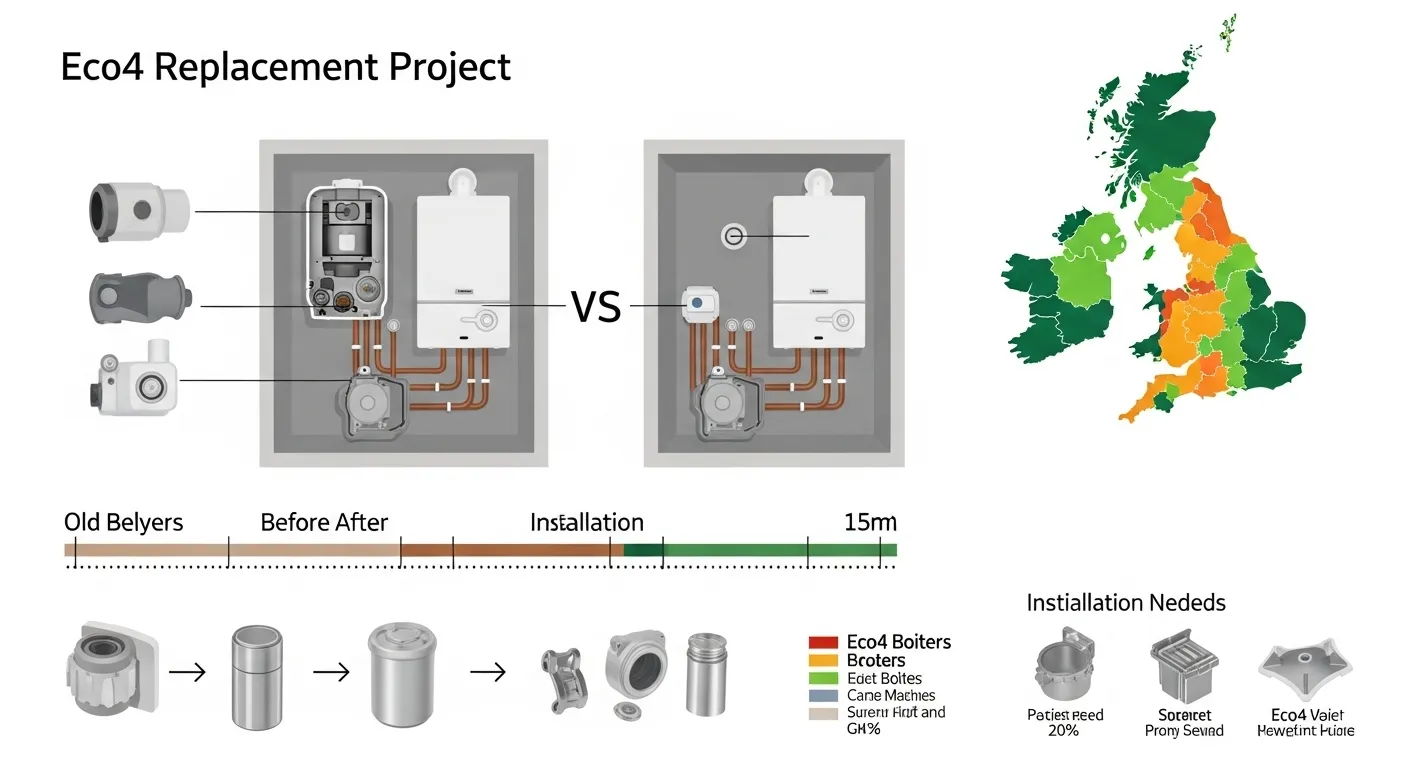Latest Updates on private tenant boiler grant - What Changed in 2025
If you are a private tenant in the UK, understanding the latest updates on boiler grants can be crucial for ensuring your home remains warm and energy-efficient. In this guide, we will delve into the current eligibility criteria, application process, and benefits of the ECO4 scheme and other government initiatives for private tenants.

Latest Updates on Private Tenant Boiler Grants - What Changed in 2025
If you are a private tenant in the UK, understanding the latest updates on boiler grants can be crucial for ensuring your home remains warm and energy-efficient. In this guide, we will delve into the current eligibility criteria, application process, and benefits of the ECO4 scheme and other government initiatives for private tenants.
Eligibility Criteria for Private Tenants
To qualify for a free boiler grant as a private tenant, several criteria must be met. Here are the key points to consider:
💡 Key Takeaway
Private tenants cannot apply directly for boiler grants; the property owner or landlord must handle the application.
| Eligibility Criteria | Affordable Warmth Scheme | ECO4 Scheme |
|---|---|---|
| Homeowner Status | Homeowners or private tenants with landlord permission | Homeowners or private tenants with landlord permission |
| Boiler Condition | 15 years or older | 8 years or older |
| Household Income | £23,000 or lower | £31,000 or lower with ECO4 flex scheme |
| Benefits | Receive credits such as child, disability or job seekers benefit | Receive credits such as child, disability or job seekers benefit |
| Energy Efficiency Rating | EPC rating of E or lower | EPC rating of D or lower |
Role of Landlords
Landlords play a crucial role in the application process for boiler grants. Here are some key points:
- Legal Duty: Landlords have a legal duty to ensure that the heating systems in their properties are up-to-date and efficient[5>.
- Application Process: Landlords must handle the application for boiler grants on behalf of their tenants.
- Evidence Required: Landlords may need to show evidence of the existing system's inefficiency and provide details of planned improvements[5>.
Benefits of Boiler Grants for Private Tenants
While private tenants cannot apply directly, the benefits of boiler grants can still be significant:
Benefits Include:
- Cost Savings: A new, efficient boiler can significantly reduce heating bills, which can be particularly beneficial for tenants who pay for their heating costs.
- Energy Efficiency: Modern boilers are much more energy-efficient, contributing to a reduction in carbon emissions and a more sustainable living environment.
- Government Support: The ECO4 scheme and other government initiatives provide financial assistance, making it more feasible for landlords to upgrade heating systems without bearing the full cost.
Step-by-Step Process for Landlords to Apply
If you are a landlord or a private tenant looking to understand how to apply for a boiler grant, here is a step-by-step guide:
Step-by-Step Process:
- Check Eligibility: Determine if the property meets the eligibility criteria for the ECO4 scheme or Affordable Warmth scheme. This includes checking the age of the boiler, the household income, and the energy efficiency rating of the property[1>.
- Gather Documents: Prepare all necessary documents, including proof of income, benefits received, and the Energy Performance Certificate (EPC) of the property.
- Find an Approved Installer: Ensure that the installer is approved under the relevant government schemes to carry out the boiler replacement.
- Apply Online: Submit the application through the relevant government or scheme websites. Landlords will need to provide all required documentation and information.
- Approval and Installation: Once the application is approved, arrange for the installation of the new boiler with the approved installer.
🔧 Expert Tip
It is advisable for landlords to consult with their tenants and ensure they are aware of the application process and the benefits it can bring to their living conditions.
Future Outlook for Boiler Grants
The UK government is committed to achieving net-zero emissions by 2050, and this commitment is likely to influence the future of boiler grants:
As the UK strives to meet its climate goals and achieve net-zero emissions by 2050, the future of boiler grants is likely to evolve, reflecting these broader energy policies[3].
Expansion of Eligibility Criteria
There is a potential for the eligibility criteria to be expanded in the coming years:
- Broadening Criteria: The government could consider broadening the criteria to include middle-income households or those in specific housing situations, enabling more people to access the support needed to replace inefficient heating systems[3>.
- Increased Funding: More resources may be allocated to ensure that more households can take advantage of these programs, providing wider access to the support needed to improve energy efficiency and reduce heating bills[3>.
FAQs
Frequently Asked Questions
- Can private tenants apply directly for boiler grants?
No, private tenants cannot apply directly. The property owner or landlord must handle the application[5>.
- What are the key eligibility criteria for the ECO4 scheme?
The key criteria include homeowner status, boiler condition, household income, benefits received, and the energy efficiency rating of the property[1>.
- Do new build properties qualify for boiler grants?
No, new build properties generally do not qualify for boiler grants as they are expected to meet current energy efficiency standards[5>.
- How can landlords benefit from boiler grants?
Landlords can benefit by meeting their legal duty to ensure efficient heating systems without bearing the full cost, thanks to the financial assistance provided by government schemes[5>.
Key Points Summary
- Private tenants cannot apply directly for boiler grants; landlords must apply on their behalf.
- The ECO4 scheme and Affordable Warmth scheme have specific eligibility criteria, including boiler age, household income, and energy efficiency rating.
- Landlords have a legal duty to ensure efficient heating systems and can benefit from financial assistance through government schemes.
- The future of boiler grants is likely to evolve with broader energy policies and potential expansions in eligibility criteria.
By understanding these updates and guidelines, both landlords and private tenants can make informed decisions about applying for boiler grants, contributing to a more energy-efficient and sustainable living environment.


